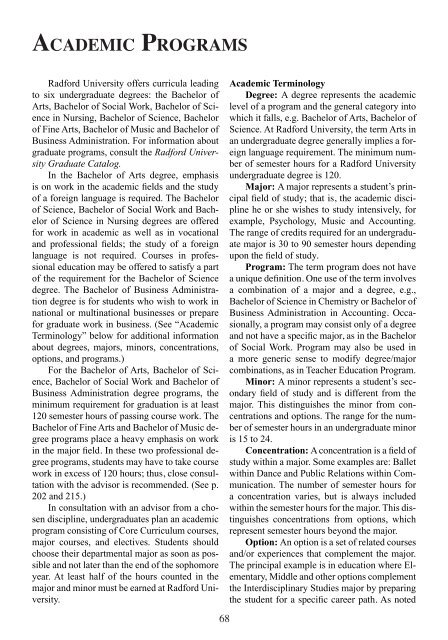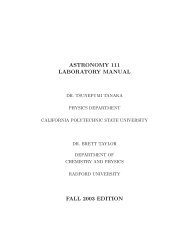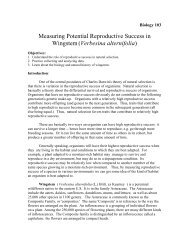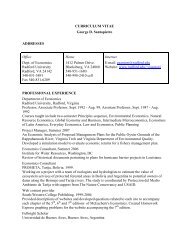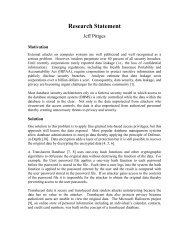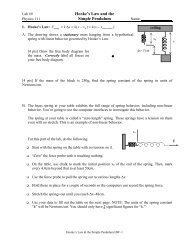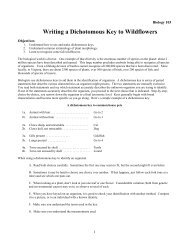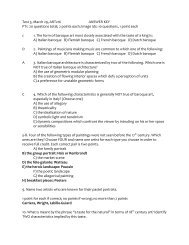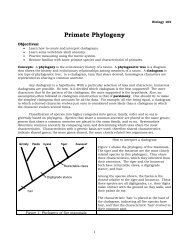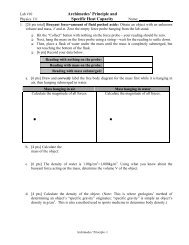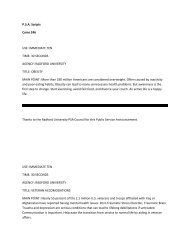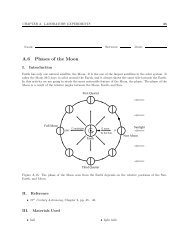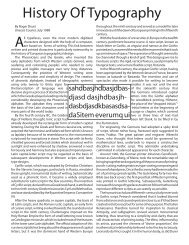Radford University Undergraduate Catalog, 2011-2012
Radford University Undergraduate Catalog, 2011-2012
Radford University Undergraduate Catalog, 2011-2012
You also want an ePaper? Increase the reach of your titles
YUMPU automatically turns print PDFs into web optimized ePapers that Google loves.
Academic Programs<br />
<strong>Radford</strong> <strong>University</strong> offers curricula leading<br />
to six undergraduate degrees: the Bachelor of<br />
Arts, Bachelor of Social Work, Bachelor of Science<br />
in Nursing, Bachelor of Science, Bachelor<br />
of Fine Arts, Bachelor of Music and Bachelor of<br />
Business Administration. For information about<br />
graduate programs, consult the <strong>Radford</strong> <strong>University</strong><br />
Graduate <strong>Catalog</strong>.<br />
In the Bachelor of Arts degree, emphasis<br />
is on work in the academic fields and the study<br />
of a foreign language is required. The Bachelor<br />
of Science, Bachelor of Social Work and Bachelor<br />
of Science in Nursing degrees are offered<br />
for work in academic as well as in vocational<br />
and professional fields; the study of a foreign<br />
language is not required. Courses in professional<br />
education may be offered to satisfy a part<br />
of the requirement for the Bachelor of Science<br />
degree. The Bachelor of Business Administration<br />
degree is for students who wish to work in<br />
national or multinational businesses or prepare<br />
for graduate work in business. (See “Academic<br />
Terminology” below for additional information<br />
about degrees, majors, minors, concentrations,<br />
options, and programs.)<br />
For the Bachelor of Arts, Bachelor of Science,<br />
Bachelor of Social Work and Bachelor of<br />
Business Administration degree programs, the<br />
minimum requirement for graduation is at least<br />
120 semester hours of passing course work. The<br />
Bachelor of Fine Arts and Bachelor of Music degree<br />
programs place a heavy emphasis on work<br />
in the major field. In these two professional degree<br />
programs, students may have to take course<br />
work in excess of 120 hours; thus, close consultation<br />
with the advisor is recommended. (See p.<br />
202 and 215.)<br />
In consultation with an advisor from a chosen<br />
discipline, undergraduates plan an academic<br />
program consisting of Core Curriculum courses,<br />
major courses, and electives. Students should<br />
choose their departmental major as soon as possible<br />
and not later than the end of the sophomore<br />
year. At least half of the hours counted in the<br />
major and minor must be earned at <strong>Radford</strong> <strong>University</strong>.<br />
68<br />
Academic Terminology<br />
Degree: A degree represents the academic<br />
level of a program and the general category into<br />
which it falls, e.g. Bachelor of Arts, Bachelor of<br />
Science. At <strong>Radford</strong> <strong>University</strong>, the term Arts in<br />
an undergraduate degree generally implies a foreign<br />
language requirement. The minimum number<br />
of semester hours for a <strong>Radford</strong> <strong>University</strong><br />
undergraduate degree is 120.<br />
Major: A major represents a student’s principal<br />
field of study; that is, the academic discipline<br />
he or she wishes to study intensively, for<br />
example, Psychology, Music and Accounting.<br />
The range of credits required for an undergraduate<br />
major is 30 to 90 semester hours depending<br />
upon the field of study.<br />
Program: The term program does not have<br />
a unique definition. One use of the term involves<br />
a combination of a major and a degree, e.g.,<br />
Bachelor of Science in Chemistry or Bachelor of<br />
Business Administration in Accounting. Occasionally,<br />
a program may consist only of a degree<br />
and not have a specific major, as in the Bachelor<br />
of Social Work. Program may also be used in<br />
a more generic sense to modify degree/major<br />
combinations, as in Teacher Education Program.<br />
Minor: A minor represents a student’s secondary<br />
field of study and is different from the<br />
major. This distinguishes the minor from concentrations<br />
and options. The range for the number<br />
of semester hours in an undergraduate minor<br />
is 15 to 24.<br />
Concentration: A concentration is a field of<br />
study within a major. Some examples are: Ballet<br />
within Dance and Public Relations within Communication.<br />
The number of semester hours for<br />
a concentration varies, but is always included<br />
within the semester hours for the major. This distinguishes<br />
concentrations from options, which<br />
represent semester hours beyond the major.<br />
Option: An option is a set of related courses<br />
and/or experiences that complement the major.<br />
The principal example is in education where Elementary,<br />
Middle and other options complement<br />
the Interdisciplinary Studies major by preparing<br />
the student for a specific career path. As noted


